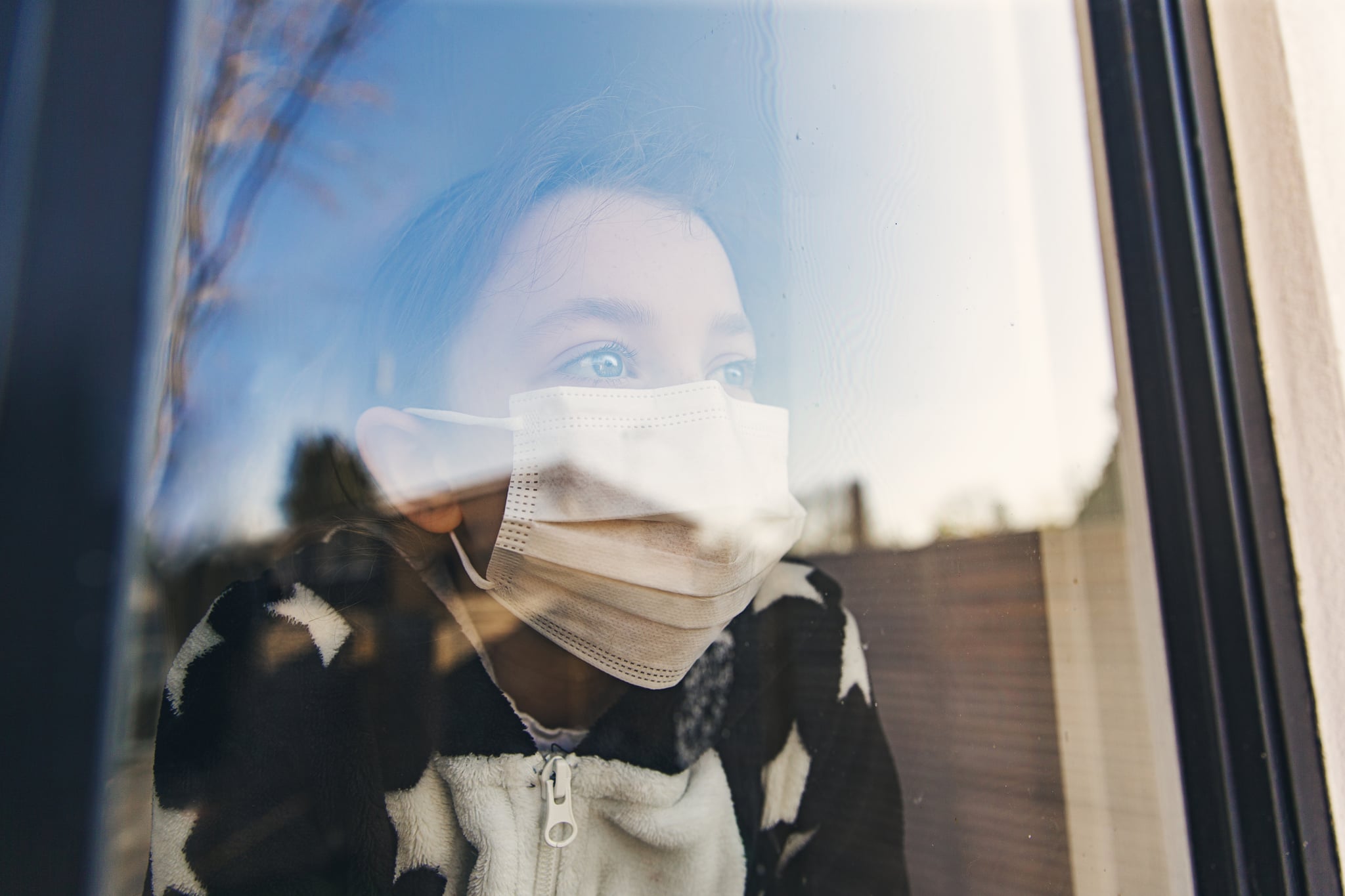
With more and more countries like Germany, Austria, and France loosening social-distancing regulations as they pertain to children, it begs the question of when — and if — the US will follow suit. Because some government officials are citing a low transmission rate among kids as the reason for slackening regulations, it's important to factor in whether children can spread the coronavirus.
Although we've been operating under the notion that children can spread COVID-19 and, in turn, been keeping them away from their grandparents and off playgrounds, their ability to transmit the virus has been called into question. Most recently, the belief as to whether or not kids can transmit COVID-19 at the same rate as adults was further muddled when the UK's Royal College of Paediatrics and Child Health (RCPCH) released a review of 78 studies [1] that found that "the role of children in transmission is unclear, but consistent evidence is demonstrating a lower likelihood of acquiring infection, and lower rates of children bringing infections into households." So what are parents to do? Scroll ahead to see both sides of the argument.
Why Some Experts Believe Kids Aren't Passing On COVID-19 at the Same Rate as Adults
According to an April 10 report from the Centres for Disease Control and Prevention [3] (CDC), pediatric cases of the coronavirus may be less severe and the rate of transmission in children is low [4]. Additionally, individuals who are 18 or younger may have different symptoms than adults. Overall, only 1.7 percent of 150,000 COVID-19 cases in the US affected those under the age of 18 and only two percent of the world's cases occurred in children. And while that's good news for many families, is it worth exposing our elderly relatives or immunocompromised friends to our kids? Some people think so.
Daniel Koch, Switzerland's infectious-disease chief, believes that loosening social-distancing orders for kids is a good idea. While speaking to reporters in April, he said, "Young children are not infected and do not transmit the virus," citing a study from Cold Spring Harbour Laboratory [5], which found that "children are significantly less likely than adults to develop severe disease, and reported pediatric deaths are rare."
Overall, only 1.7 percent of 150,000 COVID-19 cases in the US affected those under the age of 18.
And Koch is not alone in his beliefs. Denmark recently opened its schools back up, and officials in Spain are allowing kids under 13 to play outside together. Australia's chief medical officer, Brendan Murphy, agrees that social-distancing orders don't need to be as restrictive for children because they were found to be "extremely low risk" [6] following a recent study where researchers tested students in five primary schools [7] to see how quickly COVID-19 spread. According to the study's findings, only one child out of 168 tested positive for the virus after coming in contact with an infected individual.
While these results are certainly promising in terms of reopening schools [8], the study's lead author, Dr. Kristine Macartney, cautioned school administrators not to get ahead of themselves, noting that this research hasn't been officially reviewed yet. "We did see low transmission, we didn't see no transmission," she told Vox. "I think children can still transmit coronavirus [9]. That's certainly the case. We've seen that . . . It's not that transmission can't happen, it's just that evidence is suggesting . . . that [transmission among children] happens at a lower rate than does transmission between adults."
Why Some Experts Believe Kids Are Passing On COVID-19 at the Same Rate as Adults
Recently, several news outlets incorrectly reported that children can't spread the virus, so the RCPCH stepped in to clarify its review's findings on Twitter. "A number of media reports, citing RCPCH, have incorrectly suggested that children cannot transmit COVID-19 [11]," the tweet said. "This is not the RCPCH position, nor is it based on evidence. Our own research and evidence summary explicitly state that the evidence about children transmitting the virus remains unclear, in particular given the amount of asymptomatic cases."
Alasdair Munro, a clinical research fellow at University Hospital Southampton involved with the RCPCH review of studies, said that though children usually experience milder symptoms, they definitely still run the risk of infecting others.
"Children almost certainly do transmit COVID-19 [12] . . . . " Munro wrote in a tweet. In the study review, [13] Munro and his team agreed that just because kids have been found to show less-severe symptoms, that doesn't mean they can't spread it. "The role of children in passing the disease to others is unknown, in particular given large numbers of asymptomatic cases," it reads.
"Children almost certainly do transmit COVID-19."
Ultimately, there simply isn't enough research to decide on when or not to open schools, day cares [14], playgrounds [15], and other public spaces children frequent. "There's no reason to think that children are less susceptible to infection if they're exposed [16], and that they can't transmit," said World Health Organisation technical lead Maria van Kerkhove in an April 29 press conference. "We're really not seeing this in the epidemiology."
For now, the CDC suggests having kids adhere to socia-distancing guidelines. "Because persons with asymptomatic and mild disease, including children, are likely playing a role in transmission and spread of COVID-19 in the community, social distancing and everyday preventive behaviours are recommended for persons of all ages to slow the spread of the virus, protect the health care system from being overloaded, and protect older adults and persons of any age with serious underlying medical conditions," its website says.

